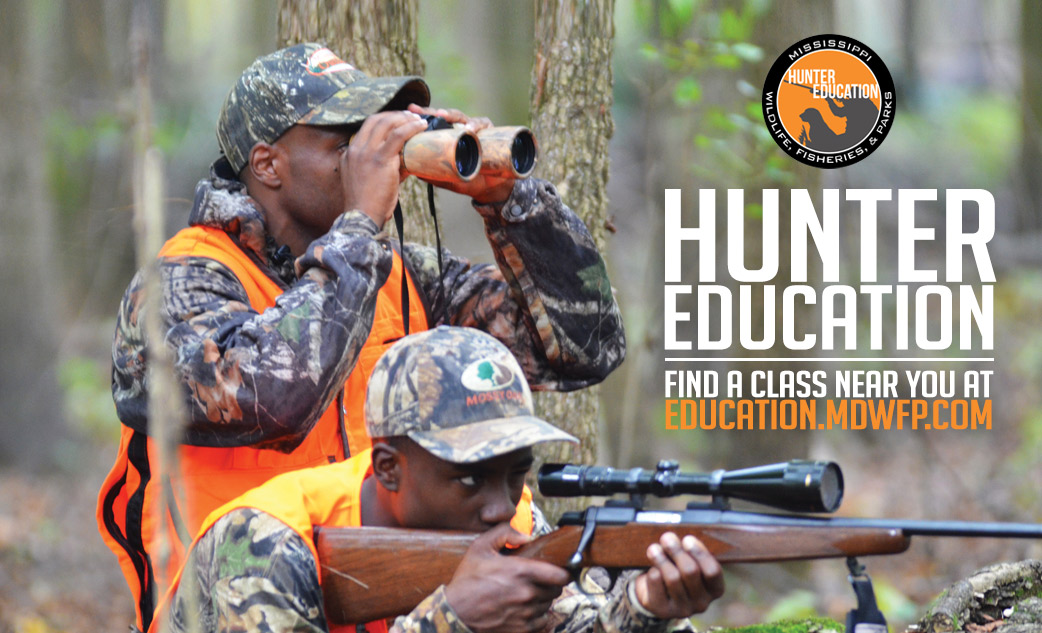Remembering Roosevelt: The Great Delta Bear
Affair
By: Randy Spencer, Wildlife Coordinator
 Like wind and sunsets, wild things were taken for granted until progress began to do away with them." Aldo Leopold, widely recognized as the "Father of Wildlife Management," penned those words in the preface to his landmark work, A Sand County Almanac. Progress indeed decimated many wild things in Mississippi, and throughout the Southeast, in the first third of the 20th century. Rapid development, associated with burgeoning human populations, was fueled by deforestation and conversion to agriculture across the landscape, often without regard to the suitability of the soil. In William Faulkner's short story, The Bear, he recognized that the "Big Woods", which he considered central to the development of the human virtues he most admired, might soon be only a memory. He referred to those woods as "that doomed wilderness, whose edges are being constantly and punily gnawed at by men with plows and axes who feared it because it was wilderness."
Like wind and sunsets, wild things were taken for granted until progress began to do away with them." Aldo Leopold, widely recognized as the "Father of Wildlife Management," penned those words in the preface to his landmark work, A Sand County Almanac. Progress indeed decimated many wild things in Mississippi, and throughout the Southeast, in the first third of the 20th century. Rapid development, associated with burgeoning human populations, was fueled by deforestation and conversion to agriculture across the landscape, often without regard to the suitability of the soil. In William Faulkner's short story, The Bear, he recognized that the "Big Woods", which he considered central to the development of the human virtues he most admired, might soon be only a memory. He referred to those woods as "that doomed wilderness, whose edges are being constantly and punily gnawed at by men with plows and axes who feared it because it was wilderness."
But by the 1930's the trend was already reversing, as the conservation consciousness of the nation began to take shape. Many state resource management agencies came into being during the decade, including, in 1932, the Mississippi Game and Fish Commission. In 1937, the Pittman-Robertson Act, which set aside funds derived from an excise tax on firearms and ammunition for state wildlife management efforts, provided the vehicle for funding the restoration of wildlife habitats and populations that had been diminished or even locally extirpated. The unparalleled success story which followed is well documented in the recovery of white-tailed deer, wild turkeys, waterfowl, and many other species. But, the Pittman-Robertson Act was actually the culmination of conservation efforts begun years earlier, many of which were shaped by President Theodore Roosevelt.
It seems appropriate that Faulkner chose Old Ben, the legendary black bear, as the very essence of the wilderness spirit. Black bears once occurred commonly throughout Mississippi. In the fertile Delta, populations were probably as dense as any ever seen for the species. It was the opportunity to hunt in the Mississippi Delta that began an unlikely series of events which would forever link our state, Teddy Roosevelt, and black bears.
Roosevelt had long wanted to participate in a Delta bear hunt and was invited to do so in the fall of 1902. On November 14, his party hunted on Smedes Plantation in southwestern Sharkey County. The guide was a former slave named Holt Collier, the most accomplished bear hunter in the nation's history. On the day before the hunt, in a display of self-confidence that makes Joe Namath look humble, Collier predicted that he would help the president get a bear if he had to catch it and tie it to a tree himself. The rest, as they say, is history. Factual details of the hunt, and the life of Holt Collier, can be found in Minor Buchanan's book Delta Icon, scheduled for publication later this year. Suffice it to say that they do not match the media accounts or the political cartoon Drawing the Line in Mississippi, that resulted in the cultural phenomenon of the Teddy Bear. It is true, however, that Roosevelt declined the opportunity to kill a bear not taken in fair chase.
The concept of fair chase was the cornerstone of the Boone and Crockett Club, established in 1887 by Roosevelt and a group of his close friends. The sportsman's consciousness that grew from a love of hunting, at a time when its future was uncertain, at best, still lives today in our collective environmental conscience. Roosevelt's contributions to conservation would become numerous. In 1904, he restructured existing departments to create the U. S. Forest Service. Most significantly of all, he began to place more and more lands under public protection for conservation purposes. During his presidency, he added some 230 million acres to the national inventory of public lands. This included 5 national parks, 4 national game reserves, 18 national monuments, 51 federal bird reservations, and 150 national forests. It is gratifying to think that his experiences in Mississippi helped to further focus Roosevelt's conservation principles, and we should be proud of our affiliation with the man for whom the Teddy Bear was named.
But what of real bears? In the 100 years since the infamous hunt, black bear populations in Mississippi have dwindled to only a remnant. The Louisiana subspecies, which generally includes bears south of Highway 82 in our state, is federally listed as threatened, while all bears in Mississippi are on the state list of endangered species. But through protection and habitat restoration, the opportunity still exists to return bear populations to stable levels.
The Mississippi Black Bear Restoration Task Force (MBBRTF) is trying to pave the way for repatriation of black bears into areas of suitable habitat and for expansion of those habitats. To help build support for this effort, and to commemorate the 100th anniversary of Roosevelt's hunt, the MBBRTF and local community leaders are planning a centennial celebration on October 18-19 in Rolling Fork. The event, "The Great Delta Bear Affair," will emphasize continuing public education, gather support for conservation efforts, honor Roosevelt's conservation legacy, and celebrate the role of black bears in Mississippi's culture, as well as its ecosystems.
The celebration will be a fitting way to acknowledge our debt to the "Conservation President" and continue to support the conservation principles he considered so important that he stated: "The conservation of our natural resources and their proper use constitute the fundamental problem which underlies almost every other problem of our national life." WI









